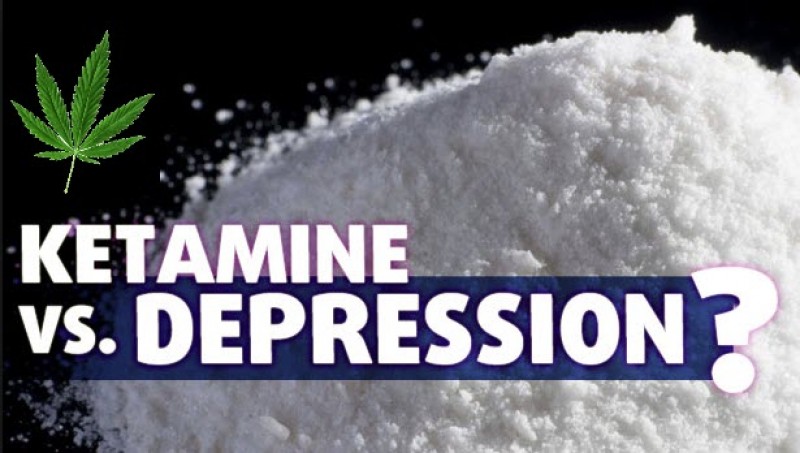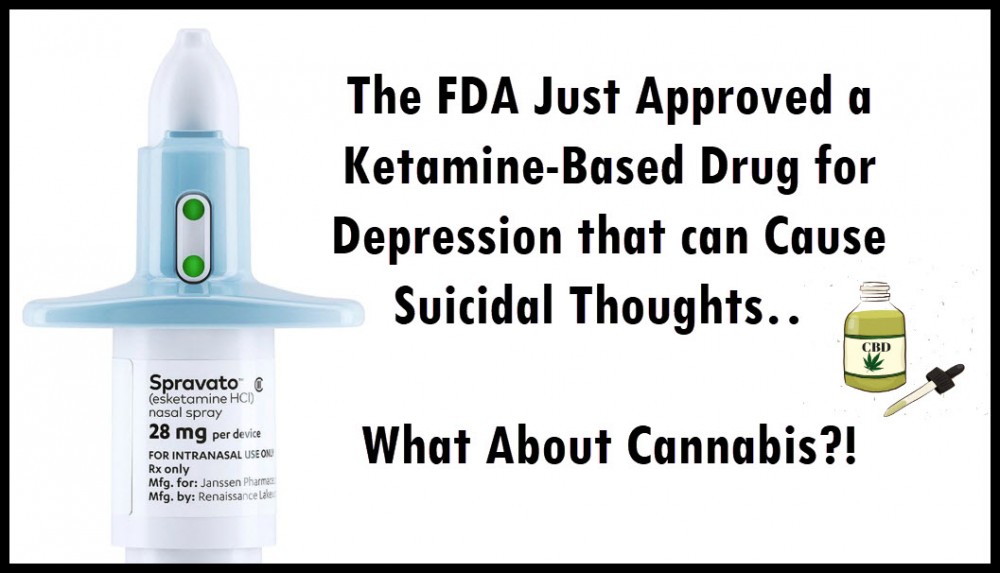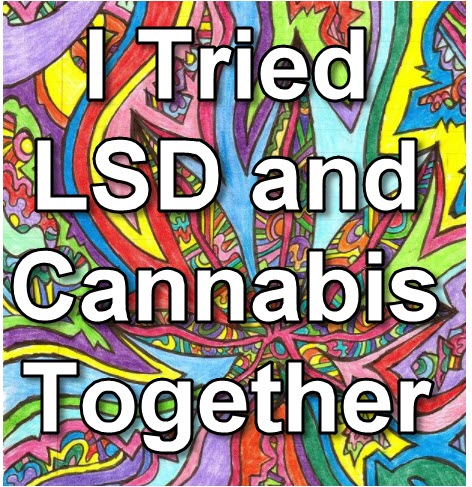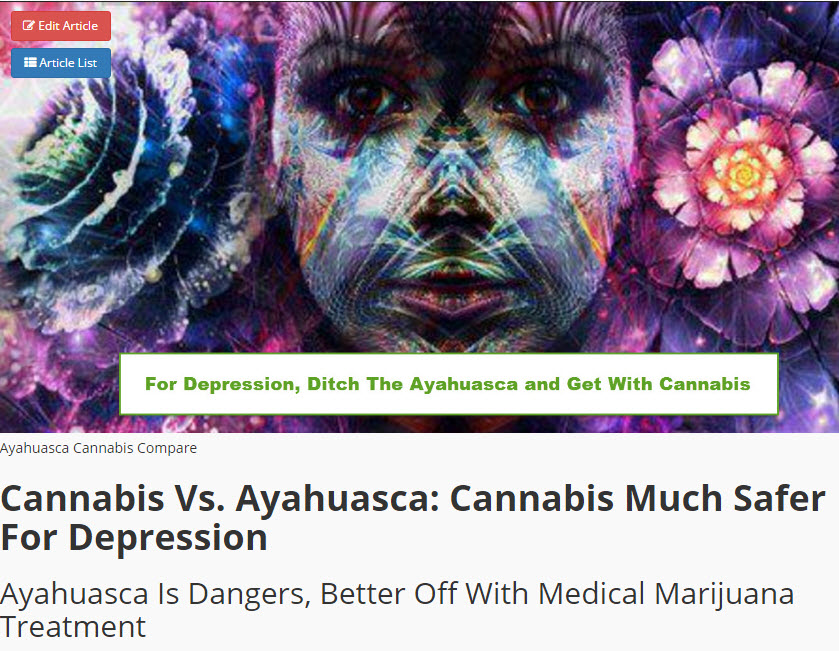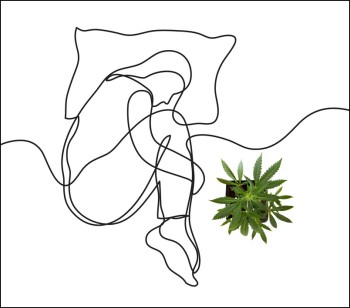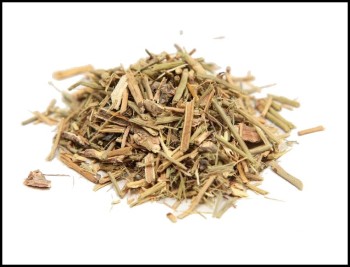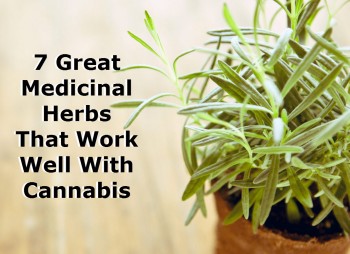I’ve Tried Ketamine and Can’t Believe Doctors Are Prescribing It!!
Doctors Are Prescribing Ketamine For Depression: A Disaster Waiting To Happen
As a subscriber to the Time.com emails, I was shocked, to say the least, when I stumbled on a feature article a few days ago entitled: New Hope For Depression. I eagerly clicked to read the article and was dumbfounded to discover that this “new hope for depression” being described by the article was KETAMINE.
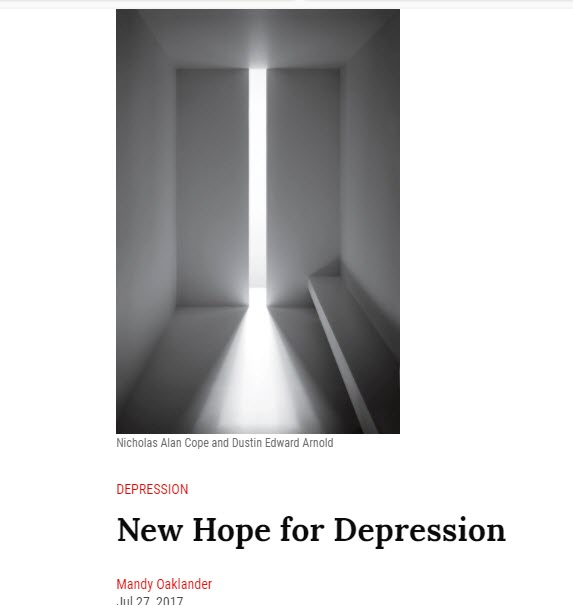
KETAMINE.
That word alone revives the dark days of my early 20’s when I was experimenting with almost every kind of psychedelic drug, until I found cannabis to be a suitable, healthy alternative for my emotional, mental, and spiritual needs.
Ketamine… I was hesitant to first try this drug because my friends referred to it as a “horse tranquilizer”. I eventually tried it but it’s so dangerous you can easily overdose on it and it can take you to a very dark place. Part of me was actually expecting the article to discuss cannabis, but I’m seriously stunned to find out what I read, which made me wonder if the article was funded by big pharma and ketamine manufacturers.
Excerpts from the article:
“There hasn't been a major depression-drug breakthrough in nearly three decades, but a number of factors are conspiring to change that. Scientists are gaining a more nuanced picture of what depression is--not a monolithic disease, but probably dozens of distinct maladies--and they're getting closer to learning what works for which kind of ailment. With suicides in the U.S. at their highest number in 30 years, experts agree that patients need faster ways to feel better, without waiting the typical four to eight weeks it takes for antidepressants to kick in. And as old drugs have gone off patent--making them less lucrative for drugmakers--companies are eager to find new revenue streams.” – this is bullshit! No major depression-drug breakthrough in nearly three decades? Where has everyone been during the fight for cannabis legalization? I really can’t believe they are conveniently overlooking cannabis as a solution for depression. I have suffered from depression in the past, I have tried cannabis, I have tried ketamine. All I can say, which is backed up by science, is that CANNABIS WORKS FOR DEPRESSION, not ketamine!
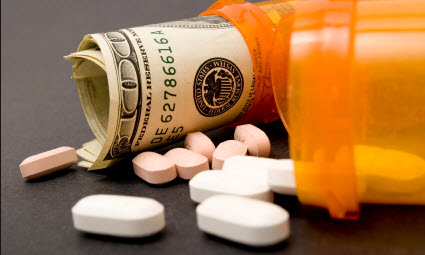
Big Pharma Fast-Tracking Ketamine As Medicine For Depression
In a 2016 CNN article, it was discussed how the FDA is putting esketamine, the “medicinal version” of ketamine, on the fast track to approval for use to treat depression.
Yup, the FDA wants to send you into a K-hole (more on that later).
The article goes on to say that this “breakthrough therapy” is intended to be used by psychiatrists as a way to treat patients who have suicidal tendencies and would also make ketamine the first new major treatment for depression in half a century. Ketamine clinics will be popping up in a neighborhood, or near a VA center, near you soon!
However, the article acknowledges the dangers of ketamine. “In some quarters, though, this potentially effective medicine can't escape its reputation as "Special K," a street drug known for producing a high similar to an out-of-body experience -- and sometimes used as a date rape drug,” it says.
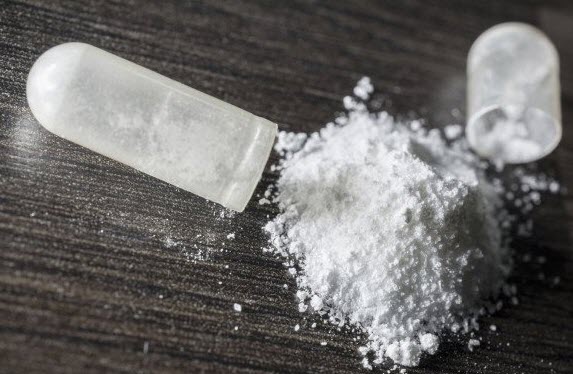
Ketamine: What Is It? What Are The Side Effects
The CNN article also discusses the origins of ketamine.
It was first created in 1962 at the Parke Davies Laboratories by Calvin Stevens. Ketamine received FDA approval for human use in 1970, and was shortly after was being used to treat American soldiers fighting in Vietnam as an analgesic and sedative.
It also says, “Today, ketamine’s most common use is as a veterinary anesthetic.”
The short-term effects of ketamine include delirium, euphoria, psychomotor retardation, nightmares or vivid dreams, hallucinations, impaired judgment, tachycardia, hypertension, nausea and vomiting. Ketamine abuse can lead to cognitive impairment, problems with memory, and even the inability to talk or see properly. You don’t have to be a rocket scientist to recognize that these are serious, severe side effects (that cannabis does not have!)
Ketamine.com says that “In a large-scale, longitudinal study, Ketamine was found to increase depression and cause severe verbal, short-term memory and visual memory problems in users who abused the drug at least 4 days per week,” and “Ketamine will make the user feel as if he or she is tired and could cause blackouts. When a user has taken Ketamine in a large dose, the effects could be that of being in a “k-hole.” K-Hole is the term used to describe the out-of-body experience that a user experiences when a large amount of Ketamine is taken. This can include delusions, misconception about the body, hallucinations or a near death experience.”

Did doctors conveniently oversee this?
Other excerpts from the Time article:
“Ketamine's effects are temporary; depression reliably creeps back, so people need infusions every few weeks or more to keep their symptoms at bay. It's also costly. The treatments are rarely covered by insurance and run from $400 to $800 per infusion. On a biweekly schedule at the high end of going rates, that adds up to more than $15,000 out of pocket per year.” – that’s crazy expensive! Why don’t people just opt for cannabis instead?? That’s certainly a lot of money to shell out for something that clearly doesn’t even work.
“Experts aren't sure exactly how ketamine works, although they agree it doesn't target the standard antidepressant route of serotonin, norepinephrine and dopamine. Instead, they think it stimulates a series of receptors in the brain, kick-starting something called synaptic plasticity--the ability of parts of the brain to grow and change. While antidepressants have been shown to also increase plasticity, ketamine seems to do it much more quickly--and much more powerfully.
How it works is one of the drug's many unknowns. Doctors also don't know the consequences and potential side effects of taking tiny doses of ketamine over and over again. People can become dependent on it, and long-term use of the drug has been linked to bladder toxicity and cognitive problems in those who abuse it recreationally. And although ketamine has been shown to be safe as an anesthetic, "you get anesthesia once," Cusin says. "You don't get anesthesia for months or a year. We have no idea what it does."
Doctors themselves don’t even understand how ketamine works or what it can do in the long run. This is completely ignorant of them to be prescribing a chemical that they know so little about, yet whose side effects are too clear and too dangerous to ignore.
How Cannabis Can Help In Psychedelic Therapy For Anxiety and Depression
Psychedelic therapy is not a new concept. It’s been around for some time now, and while I do believe (and partake) in the therapeutic benefits of occasionally indulging in mushrooms 2-3 times a year for emotional and spiritual cleansing, and am a regular cannabis user, I stand firm in my belief that psychedelic therapy should only be used with drugs derived from plants and nature. Which ketamine is not.
In the Harbor-UCLA Medical Center in Southern California, studies are ongoing to analyze FDA approved studies of psilocybin, the psychoactive compound in mushrooms. Think of psilocybin as the THC of mushrooms. One of the recent studies looked at 12 cancer patients who suffered from psychiatric conditions because of their condition, and the goal of the study was to look at the efficacy and safety of psilocybin in treating anxiety induced by cancer. A patient by the name of Annie Levy, who was diagnosed with late-stage ovarian cancer who was also struggling with anxiety and depression because of her diagnosis, felt the therapeutic benefits of the drug after treatment. According to her husband, “It was like someone had lit up a lightbulb in Anne’s head. She was a totally different person.”
Another study conducted by New York University and John Hopkins University found that there was an 80% decrease in anxiety and depression among cancer patients when they were treated with psilocybin. Most of the studies intended to analyze psychedelic therapy use psilocybin instead of other drugs like cannabis. Although psychedelic treatment may seem unorthodox at the very least, there’s no doubt that many people have actually benefited from its therapeutic benefits and found relief from anxiety and depression.
However, the experience of mushrooms might not be open to some people. Based on my own first-hand experience, it can also be traumatic and overwhelming if too much has been taken, because it’s a hallucinogenic. Psychedelic treatment can only be safely done in the confines of a hospital under close supervision. Certainly nothing beats cannabis in terms of safety; plus the fact that you can medicate with it in the comfort of your own home whenever you need to.
THC, the psychoactive compound in cannabis, can be just as beneficial as psilocybin in treating anxiety and depression. Some cannabis products, especially those that have high concentrations of THC such as wax and other kinds of concentrates, are already widely being used to treat a range of medical conditions including anxiety, depression, PTSD, other mood and physical disorders. Cannabis has already been approved for medical use in most of the US states, giving patients the ability to have safe and legal access to psychedelic treatment.
Clearly, cannabis is much more of a useful, and more affordable resource when it comes to psychedelic therapy whereas with other substances such as mushrooms may be too overpowering for some people, and ketamine is a synthetically produced chemical drug that hasn’t been studied long enough for medicinal use but clearly has dangerous side effects.
OTHER STORIES YOU MAY ENJOY...
FDA APPROVES KETAMINE BASED SPRAY FOR DEPRESSION, CLICK HERE.
OR..
I TRIED WEED WITH MUSHROOMS AND LSD, CLICK HERE.

